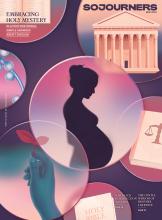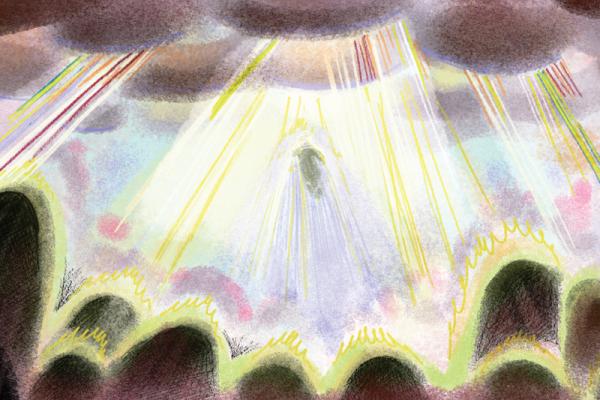MOST OF OUR gospel readings in May move through sections in John’s gospel commonly referred to as the “farewell discourse.” In this long goodbye, Jesus and his disciples have finished eating their last supper together. Judas has departed to betray his friend. Now it’s time for Jesus’ final words to the remaining 11. Or, at least, it’s time for him to say goodbye from the perspective of who they’ve known him to be thus far. He’s preparing them for who he is becoming, as well as how he’ll continue to be among them — and, by extension, among us. There’s a lot that Jesus wants to accomplish without fully tipping his hand. So, his speech is at times confusing!
Unsurprisingly, a sense of longing permeates the whole address. These friends are saying goodbye to each other while also scrambling for ways to stay together. Jesus is grieving that goodbye, while also anticipating a joyful return to his Abba in heaven. As he speaks, then, Jesus tells of a fluid, swirling kind of love that permeates and connects God, himself, and his followers all to each other. This fluid love is the Holy Spirit that Jesus will “breathe” upon his followers (John 20:22) — the Holy Spirit who lingers among us still.
Our celebrations at Pentecost tend to focus on the wild descent of fiery tongues upon the early Jesus community — as they should. But in this lectionary cycle, the New Testament readings don’t focus on wind, fire, or tongues. Instead, they have us abide in these less dramatic, more subtle, ambiguous, and mysterious moments. This year, Pentecost calls us to abide in and with a love that often doesn’t make sense, but that always must be shared.
Read the Full Article

